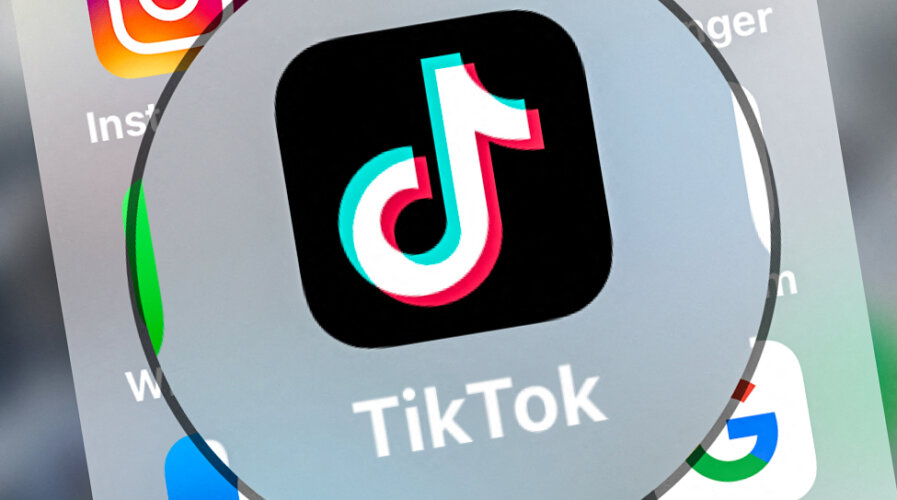
TikTok vs Government: Canada joins the US and EU in banning TikTok on official devices. (Photo by DENIS CHARLET / AFP)
TikTok vs Government: Canada joins the US and EU in banning TikTok on official devices
|
Getting your Trinity Audio player ready... |
- This week, Canada announced a ban on the Chinese-owned social media app TikTok on government-issued devices.
- Federal employees will also be blocked from downloading the application in the future.
- Initially disappointed by the decision, TikTok later issued another statement noting that it was “curious” about Canada’s move, which comes after similar bans in the EU and the US.
- The UK’s Prime Minister, Rishi Sunak is also being urged to ban government officials from using TikTok.
A growing number of federal lawmakers worldwide are following the steps of the United States (US) by banning TikTok on government or official staff devices. The movement, initiated by the Biden Administration in December last year, has even seen the European Commission implementing the same prohibition on staff phones and corporate devices.
Joining both the US and European Commission this week, Canada announced that it too will begin restricting TikTok from government-issued devices from today. Prime Minister Justin Trudeau claimed that the ByteDance-owned company presents an “unacceptable” level of risk to privacy and security and that his government is carefully considering how to ensure Canadians’ online safety.
According to a statement from Canada’s Treasury Board, which oversees public administration, federal employees will also be blocked from downloading the application in the future. Treasury Board President Mona Fortier said that TikTok’s data collection methods provide considerable access to phone contents.
For Canada, the decision to remove and block TikTok from government mobile devices is being taken as a precaution, particularly given concerns about the legal regime that governs the information collected from mobile devices, “and is in line with the approach of our international partners,” Fortier said.
Meanwhile, Trudeau believes that “this may be a first step; it may be the only step we need to take.” He also believes that as the government bans TikTok on work phones, “many Canadians, businesses, and private individuals will reflect on the security of their data and perhaps make choices accordingly.”
However, Fortier clarified that while the risks of using TikTok are clear, the administration has no evidence that government information has been compromised. “For the broader public, choosing a social media application or platform is a personal choice. However, the Communications Security Establishment’s Canadian Centre for Cyber Security (Cyber Centre) guidance strongly recommends that Canadians understand the risks and make an informed choice on their own before deciding what tools to use,” Fortier added.
The fate of TikTok in the US and Europe
Governments worldwide have been grappling with the expanding scope of China’s digital regulations, which have set the stage for Beijing’s global data collection. Therefore, as data traverses borders without explicit consent, experts reckon the privacy of individuals, organizations, and even government bodies are at risk, posing a potential threat to national security.
At the start of this week, even the White House imposed a new ruling that gives government agencies 30 days to ensure they do not have the Chinese-owned app TikTok on federal devices and systems. In a guidance memorandum seen by Reuters, Office of Management and Budget Director Shalanda Young told agencies that they must adjust information technology contracts to ensure vendors keep US data safe by eliminating using TikTok on their devices and systems.
The action, however, only affects the 100 million Americans who use TikTok on personal or company-owned devices. Before this week’s direction, the US Congress in December voted to bar federal employees from using TikTok on government-owned devices and gave the Biden administration 60 days to issue agency directives.
Before the vote, many government agencies, including the White House, Department of Defense, Department of Homeland Security, and the State Department, had also banned TikTok from government devices. As for the European Commission, in their effort to “protect data and increase cybersecurity,” staff working at the Commission have been ordered to remove the TikTok app from their phones and corporate devices.
The ban also means European Commission staff cannot use TikTok with official apps installed on personal devices. The Commission shared that there are around 32,000 permanent and contract employees, and they must oblige by March 15, 2023. Even Rishi Sunak, the Prime Minister of the United Kingdom (UK), has been urged to ban government officials from using TikTok in line with moves by the US and Europe.
TikTok’s reaction to the increasing Western scrutiny
When Canada imposed the ban, TikTok said it was disappointed by the decision. Later, the ByteDance-owned company issued another statement noting that it was “curious” that Canada only blocked the app after similar bans in the European Union and the US. The ban was issued “without citing any specific security concern or contacting us with questions,” a TikTok spokesperson said.
READ MORE
- Safer Automation: How Sophic and Firmus Succeeded in Malaysia with MDEC’s Support
- Privilege granted, not gained: Intelligent authorization for enhanced infrastructure productivity
- Low-Code produces the Proof-of-Possibilities
- New Wearables Enable Staff to Work Faster and Safer
- Experts weigh in on Oracle’s departure from adland


